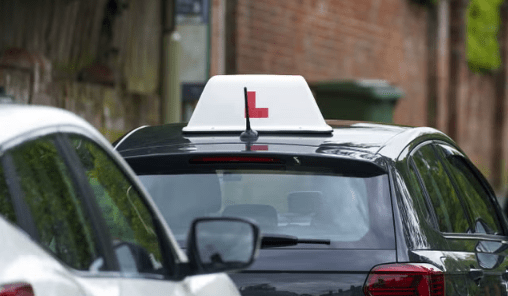A sharp rise in fraudulent driving test and lesson offers has triggered fresh warnings for learner drivers across the UK.
TSB Bank has flagged a dramatic increase in these scams, many starting on social media, leaving would-be drivers hundreds of pounds out of pocket.
Learner drivers urged to beware of fake lessons and test offers
New data from TSB has revealed a staggering 211% surge in losses linked to fake driving tests and lesson scams between January and August 2025, compared with the same period in 2024.
With long waiting times for driving tests across the country, desperate learners are being lured into unofficial channels that promise fast-track solutions only to find themselves duped.
One learner handed over £500 for a block of 20 lessons. Once the payment was made, all contact stopped. Another tried to pay £100 for a “fast-tracked test” via a social media post, but the payment was flagged and blocked by TSB as fraudulent.
As waiting lists grow longer, fraudsters are seizing the moment, offering fake deals that prey on the urgency of learner drivers. With many scams starting on social platforms, officials urge caution and insist learners stick to official DVSA channels.
Fake Websites & Social Media Scams on the Rise
The scam doesn’t stop at messaging apps. Fraudsters are now setting up fake DVSA websites that mimic the look and feel of official government portals.
Unsuspecting victims are tricked into entering personal details and paying for non-existent services.
TSB warns that these scams almost always originate on social media, making them harder to trace and easier to fall for.
“Fraudsters have really upped their attempts to target learner drivers – with offers of driving lessons and fast-tracked tests that simply don’t exist.
Almost all of these scams start from social media platforms, so we’d advise only paying for a service if you can verify it first, and stick to official routes when booking your exam,” said Alex Robinson, Head of Fraud Analytics at TSB.
DVSA Responds: “We Take This Seriously”
The Driver and Vehicle Standards Agency (DVSA) echoed the concerns raised by TSB, confirming the scale and seriousness of the threat.
“TSB’s data shows that there is a serious and growing problem with this type of fraud. These accounts and sites are recognised as scams.
We urge people to report any suspicious social media accounts offering driving services to the relevant social media network,” a DVSA spokesperson stated.
The DVSA also reassured the public that any attempt to bypass the official testing process would be thoroughly investigated.
Protect Yourself: Expert Tips from TSB
To help learner drivers avoid falling victim, TSB has issued several straightforward yet crucial pieces of advice:
- Verify the provider before making any payments. Don’t rely on posts or DMs, dig deeper.
- Be sceptical of offers for “fast-tracked” driving tests or lessons, especially through social media.
- Use official DVSA websites only. Fraudulent sites can look genuine, so double-check the URL.
- Ignore pressure tactics. Scammers often create urgency to force quick decisions.
Why Learners Are Particularly Vulnerable
With the current backlog in driving test slots, learners are more vulnerable than ever. Waiting times in some areas stretch for months, tempting people into taking shortcuts through unofficial offers.
And that’s exactly what scammers are counting on. Even trusted messaging apps are now being used to initiate contact, luring drivers in with attractive packages and promises of convenience.
Once payment is made, whether for a test or lessons, victims often find themselves ghosted.
The road to getting your licence might be longer than expected, but taking detours through unofficial sources can come at a far greater cost.
If you’re looking to book your test or lessons, do it through licensed instructors and the official DVSA website only. No fast track is worth losing your money or your data.
Stay alert. Stay official. And don’t let fraudsters stall your journey.






